NCERT Summary: Fundamental Rights in the Indian Constitution- 1 | Indian Polity for UPSC CSE PDF Download
Introduction
During our freedom struggle, the leaders of the freedom movement had realised the importance of rights and demanded that the British rulers should respect rights of the people. The Motilal Nehru committee had. demanded bill of rights as far as back as in 1928. It was therefore, natural that when India became independent and the Constitution was being prepared, there were no two opinions on the inclusion and protection of rights in the Constitution. The Constitution listed the rights that would be specially protected and called them ‘fundamental rights’.
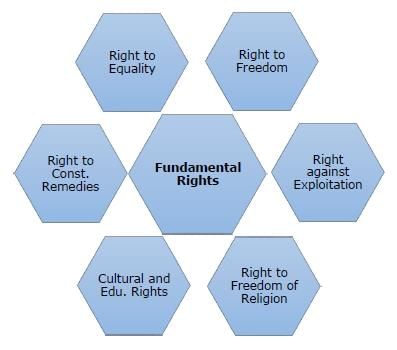
The word fundamental suggests that these rights are so important that the Constitution has separately listed them and made special provisions for their protection.
- The Fundamental Rights are so important that the Constitution itself ensures that they are not violated by the government. Fundamental Rights are different from other rights available to us. While ordinary legal rights are protected and enforced by ordinary law, Fundamental Rights are protected and guaranteed by the constitution of the country.
- Ordinary rights may be changed by the legislature by ordinary process of law making, but a fundamental right may only be changed by amending the Constitution itself. Besides this, no organ of the government can act in a manner that violates them.
- Judiciary has the powers and responsibility to protect the fund a mental rights from violations by actions of the government. Executive as well as legislative actions can be declared illegal by the judiciary if these violate the fundamental rights or restrict them in an unreasonable manner.
- However, fundamental rights are not absolute or unlimited rights. Government can put reasonable restrictions on the exercise of our fundamental rights.
Right to Equality
- It provides for equal access to public places like shops, hotels, places of entertainment, wells, bathing ghats and places of worship. There cannot be any discrimination in this access on the basis of caste, creed, colour, sex, religion, or place of birth. It also prohibits any discrimination in public employment on any of the above mentioned basis. This right is very important because our society did not practice equal access in the past.
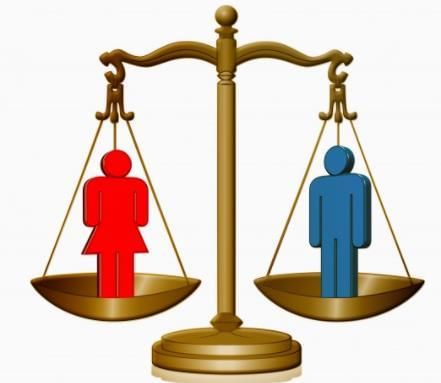
- The practice of untouchability is one of the crudest manifestations of inequality. This has been abolished under the right to equality. The same right also provides that the state shall confer no title on a person except those who excel themselves in military or academic field. Thus right to equality strives to make India a true democracy by ensuring a sense of equality of dignity and status among all its citizens. Read the Preamble to our Constitution? You will find that the Preamble mentions two things about equality: equality of status and equality of opportunity. Equality of opportunity means that all sections of the society enjoy equal opportunities. But in a society where there are various kinds of social inequalities, what does equal opportunity mean?
- The Constitution clarifies that the government can implement special schemes and measures for improving the conditions of certain sections of society: children, women, and the socially and educationally backward classes. You may have heard about ‘reservations’ in jobs, and in admissions. You would have wondered why there are reservations if we follow the principle of equality in fact Article 16(4) of the constitution explicitly clarifies that a policy like reservation will not be seen as a violation of right to equality. If you see the spirit of the Constitution, this is required for the fulfilment of the right to equality of opportunity.
- Article 16 (4): Nothing in this article shall prevent the State from making any provision for the reservation of appointments or posts in favour of any backward class of citizens which, in the opinion of the State, is not adequately represented in the services under the State.
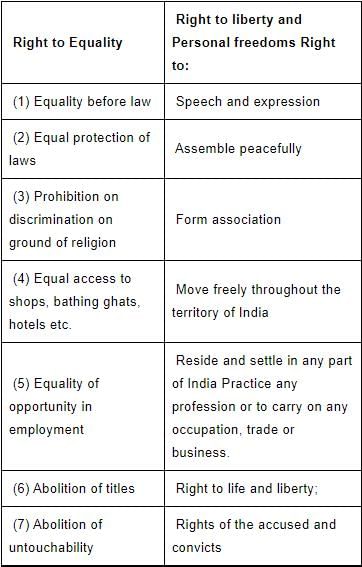
Right to Freedom
Equality and freedom liberty, are the two rights that are most essential to a democracy. It is not possible to think of the one without thinking of the other. Liberty means freedom of thought, expression and action. However it does not mean freedom to do anything that one desires or likes. If that were to be permitted then a large number of people will not be able to enjoy their freedom. Therefore, freedoms are defined in such a manner that every person will enjoy her freedom without threatening freedom of others and without endangering the law and order situation.
Article 21: Protection of life and personal liberty - No person shall be deprived of his life or personal liberty except according to procedure established by law.
(i) Right to life and personal liberty
- The foremost right among rights to freedom is the right to life and personal liberty. No citizen can be denied his or her life except by procedure as laid down under the law. Similarly no one can be denied his/her personal liberty.
That means no one can be arrested without being told the grounds for such an arrest. If arrested, the person has the right to defend himself by a lawyer of his choice. Also, it is mandatory for the police to take that person to the nearest magistrate within 24 hours. The magistrate, who is not part of the police, will decide whether the arrest is justified or not. - This right is not just confined to a guarantee against taking away of an individual’s life but has wider application. Various judgments of Supreme Court have expanded the scope of this right. The Supreme Court has ruled that this right also includes right to live with human dignity, free from exploitation.
- The court has held that right to shelter and livelihood is also included in the right to life because no person can live without the means of living, that is, the means of livelihood.
(ii) Preventive detention
- Ordinarily, a person would be arrested after he or she has reportedly committed some offence. However there are exceptions to this. Sometimes a person can be arrested simply out of an apprehension that he or she is likely to engage in unlawful activity and imprisoned for some time without following the above mentioned procedure. This is known as preventive detention.
- It means that if the government feels that a person can be a threat to law and order or to the peace and security of the nation, it can detain or arrest that person. This preventive detention can be extended only for three months. After three months such a case is brought before an advisory board for review.
- On the face of it, preventive detention looks like an effective tool in the hands of the government to deal with anti-social elements or subversives. But this provision has often been misused by the government. Many people think that there must be greater safeguards in this law so that it may not be misused against people for reasons other than that which are really justified. In fact, there is a clear tension between right to life and personal liberty and the provision for preventive detention.
- Other freedoms: You can see that under the right to freedom there are some other rights as well. These rights however are not absolute. Each of these is subject to restrictions imposed by the government.
Example: Right to freedom of speech and expression is subject to restrictions such as public order, peace and morality etc. Freedom to assemble too is to be exercised peacefully and without arms. The government may impose restrictions in certain areas declaring the assembly of five or more persons as unlawful. - Such powers can be easily misused by the administration. The genuine protest against an act or policy of government by the people may be denied permission. However, if the people are aware and vigilant in regard to their rights and choose to protest against such acts of administration such misuse becomes rare. In the Constituent Assembly itself, some members had expressed their dissatisfaction about restrictions on rights.
(iii) Rights of Accused
Our Constitution ensures that persons accused of various offences would also get sufficient protection. We often tend to believe that anyone who is charged with some offence is guilty. However, no one is guilty unless the court has found that person guilty of an offence. It is also necessary that a person accused of any crime should get adequate opportunity to defend herself or himself. To ensure a fair trial in courts, the Constitution has provided three rights:
- no person would punished for the same offence more than once,
- no law shall declare any action as illegal from a backdate, and
- no person shall be asked to give evidence against himself or herself.
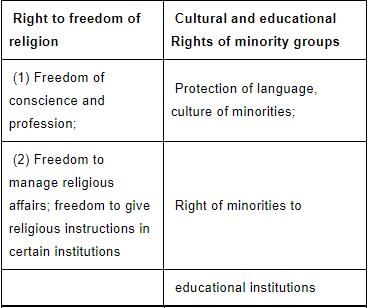
Right Against Exploitation
In our country there are millions of people who are underprivileged and deprived. They may be subjected to exploitation by their fellow human beings. One such form of exploitation in our country has been beggar or forced labour without payment. Another closely related form of exploitation is buying and selling of human beings and using them as slaves. Both of these are prohibited under the Constitution. Forced labour was imposed by landlords, money lenders and other wealthy persons in the past. Some form of bonded labour still continues in the country, specially in brick kiln work. It has now been declared a crime and it is punishable.
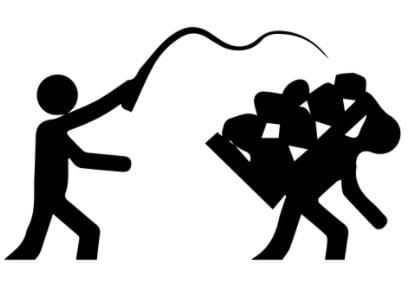 The Constitutional so forbids employment of children below the age of 14 years in dangerous jobs like factories and mines. With child labour being made illegal and right to education be coming a fundamental right for children, this right against exploitation has be come more meaningful.
The Constitutional so forbids employment of children below the age of 14 years in dangerous jobs like factories and mines. With child labour being made illegal and right to education be coming a fundamental right for children, this right against exploitation has be come more meaningful.
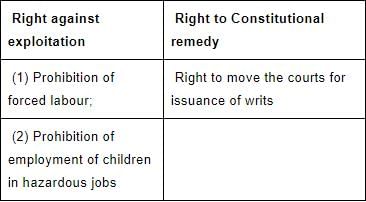
|
145 videos|630 docs|203 tests
|
FAQs on NCERT Summary: Fundamental Rights in the Indian Constitution- 1 - Indian Polity for UPSC CSE
| 1. What are fundamental rights in the Indian Constitution? |  |
| 2. How are fundamental rights protected in the Indian Constitution? |  |
| 3. Can fundamental rights be limited or restricted? |  |
| 4. What is the significance of fundamental rights in the Indian Constitution? |  |
| 5. Can fundamental rights be suspended in times of emergency? |  |

































